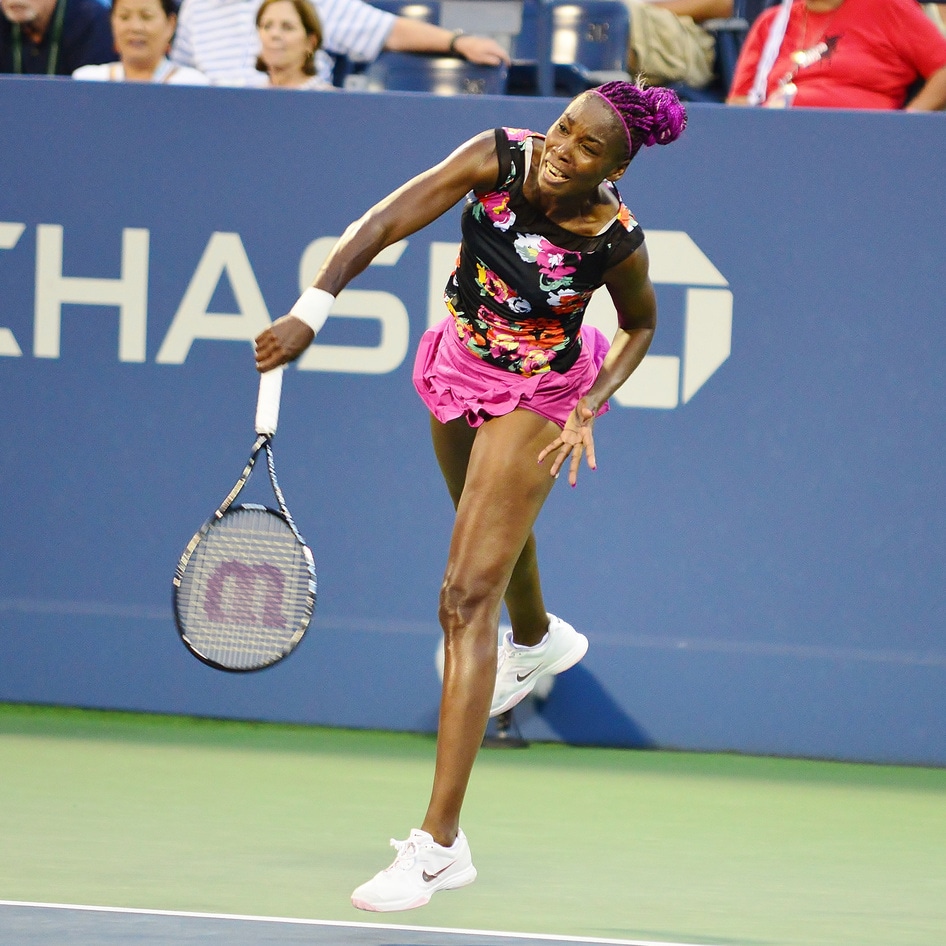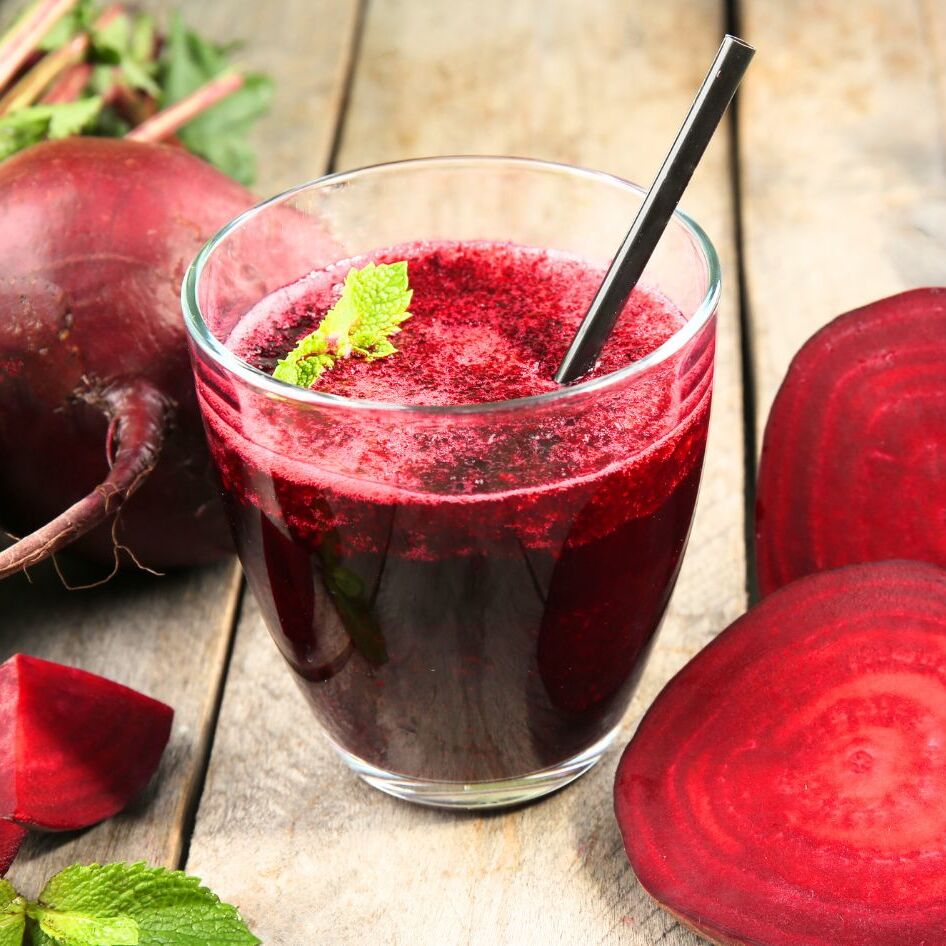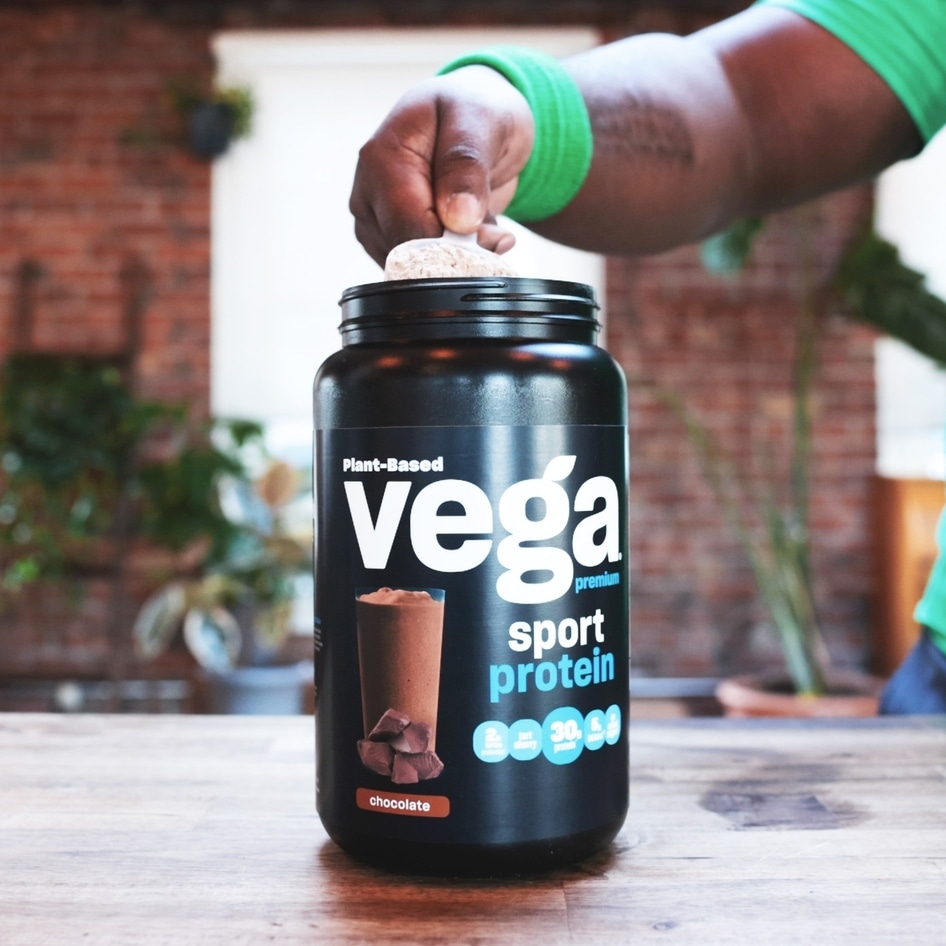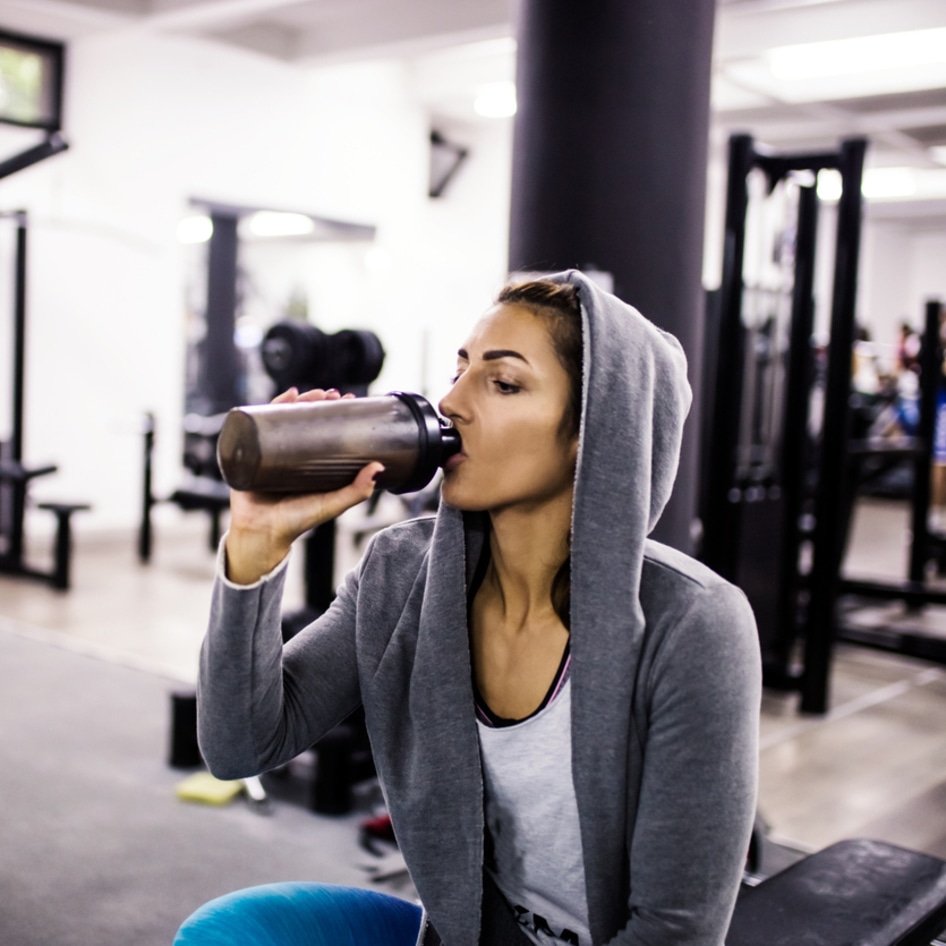Milk does a body good … or does it? And if not, can oat milk do better? For lactose intolerant athletes, it is clear that staying away from dairy reduces inflammation, discomfort, and bloating—which no doubt affects performance.
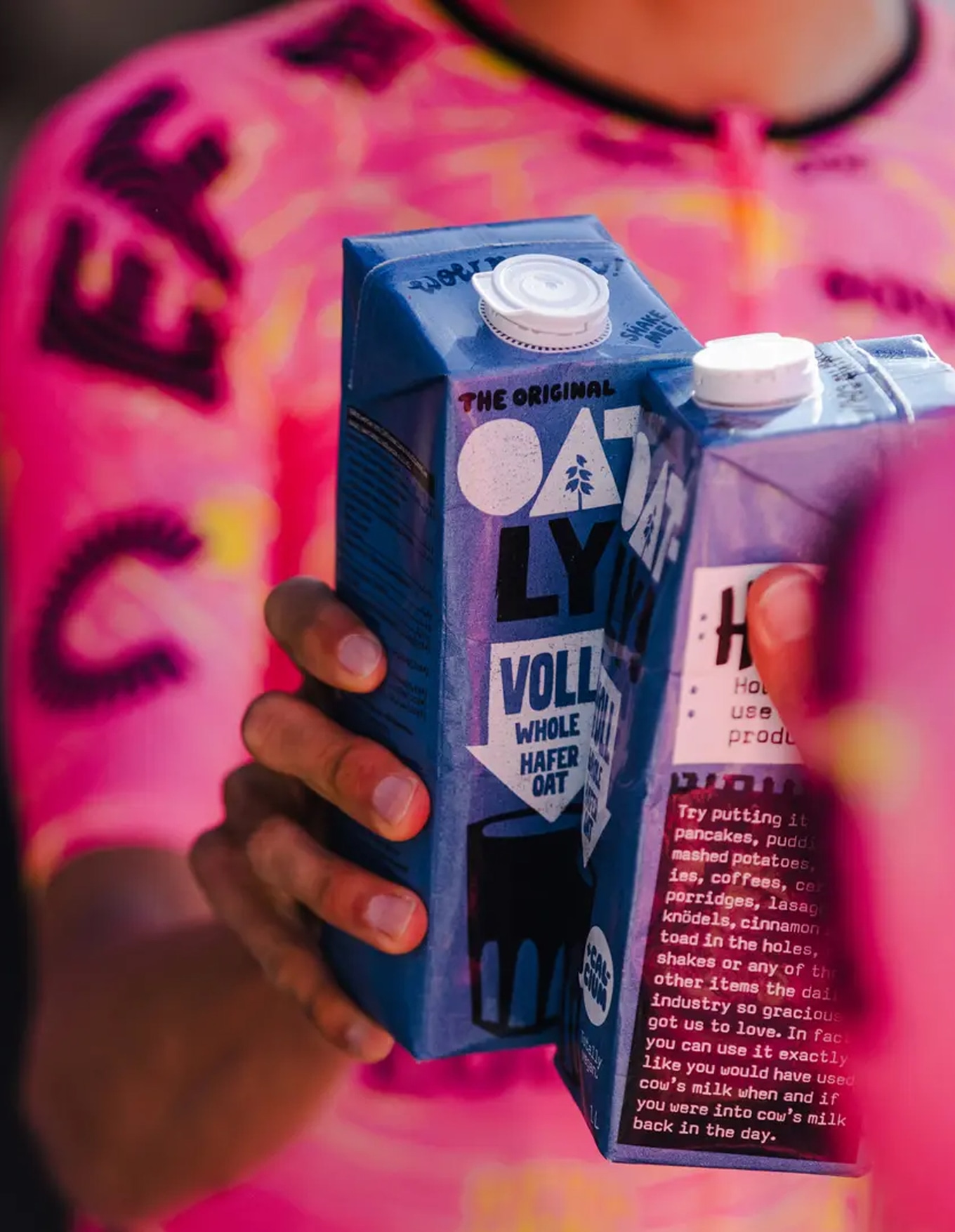 EF Pro Cycling
EF Pro Cycling
Oatly, the world’s leading oat milk brand, is testing this theory across several professional sports to give athletes a chance to reach optimal performance while being kinder to the environment.
Dairy’s hold on sports
For decades, dairy products—from milk to whey—have been touted as an important part of sports nutrition, promoted for their high protein content and role in muscle recovery. However, emerging evidence and shifting consumer preferences are challenging this long-standing narrative.
But does milk really do a body good? Switch4Good, an organization founded by Olympic silver medal-winning cyclist Dotsie Bausch, has challenged this notion for years. Inspired by an ad touting dairy at the 2018 Olympics, Bausch founded the organization to show that peak athletic performance is not fueled by dairy. In fact, consuming animal products might actually hinder it.
In a scientific report titled “Cow’s Milk, Health and Athletic Performance” by Switch4Good, medical experts discuss how dairy consumption can negatively impact athletic performance through various mechanisms.
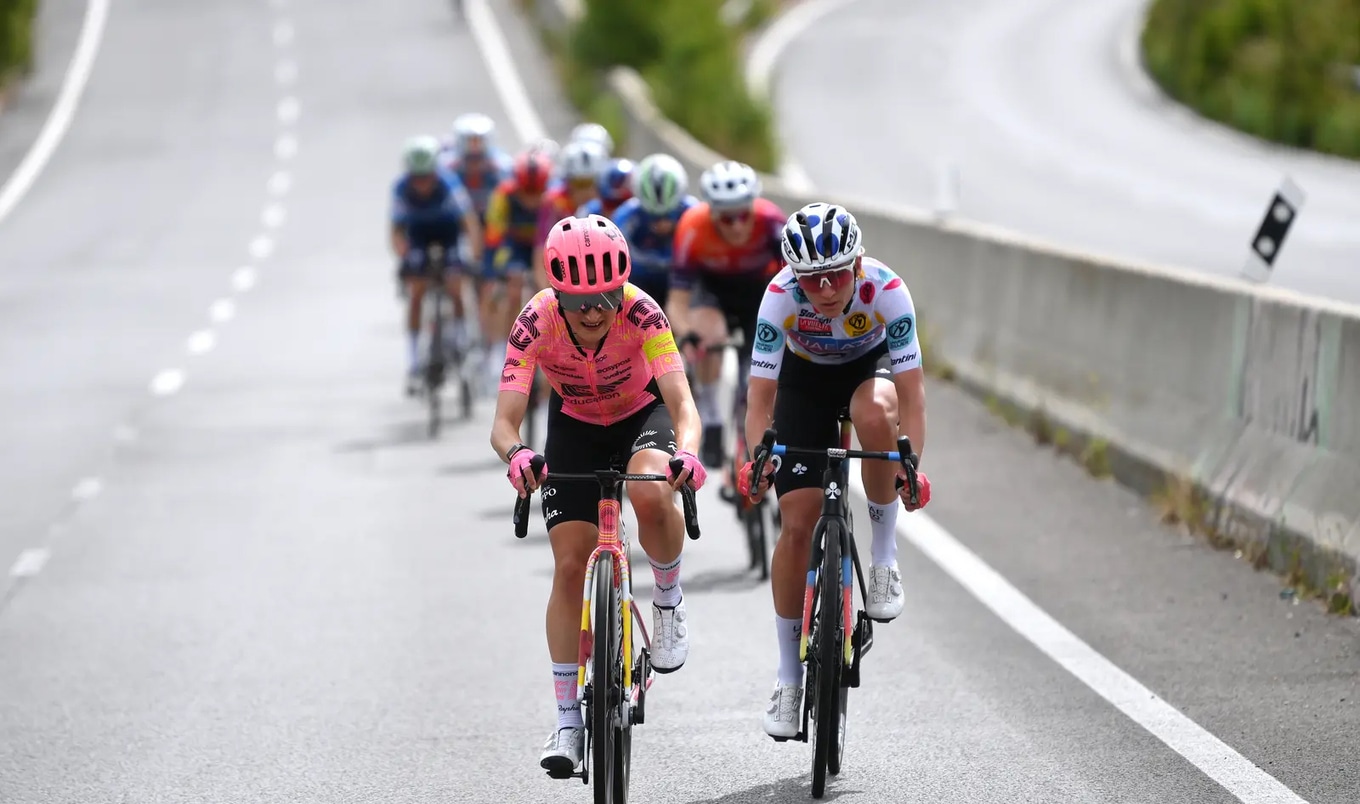 EF Pro Cycling
EF Pro Cycling
One of the key concerns is hormonal imbalance. “We know that disruption of the endocrine system can impair sports performance and yield adverse health effects,” the report states, citing multiple studies around the link between dairy consumption and hormonal disruption. “Considering the presence of bovine sex hormones in cow’s milk and milk’s ability to significantly influence human estrogen levels, abstaining from dairy foods may be a wise strategy for athletes.”
Respiratory health is another significant area where dairy can be problematic. “Many athletes have experienced improvement or remission in their asthma symptoms after giving up dairy,” James Loomis, MD, a former team physician for the St. Louis Rams, said in the report.
“Dairy products are known to cause inflammation and mucus production, which can impair breathing—an essential function for athletes,” the doctor said.
Gastrointestinal health also plays a crucial role in performance and the scientific evidence continues to link dairy consumption to inflammation, microbiome imbalance, hormonal issues, and more.
“As a gastroenterologist who specializes in gut health and fitness, I’m always surprised to see athletes who consume foods that may diminish their performance,” Angie Sadeghi, MD, said in the report. “The dairy industry heavily advertises cow’s milk as the beverage of choice for athletes, but many coaches who promote chocolate milk and whey protein never look into the actual science.”
Could oat milk offer athletes a solution?
Dairy-free at Tour de France Femmes
Oatly put its dairy-free milk to the test during the recent Tour de France Femmes by sponsoring EF Pro Cycling, a team that competes at the highest levels of international cycling.
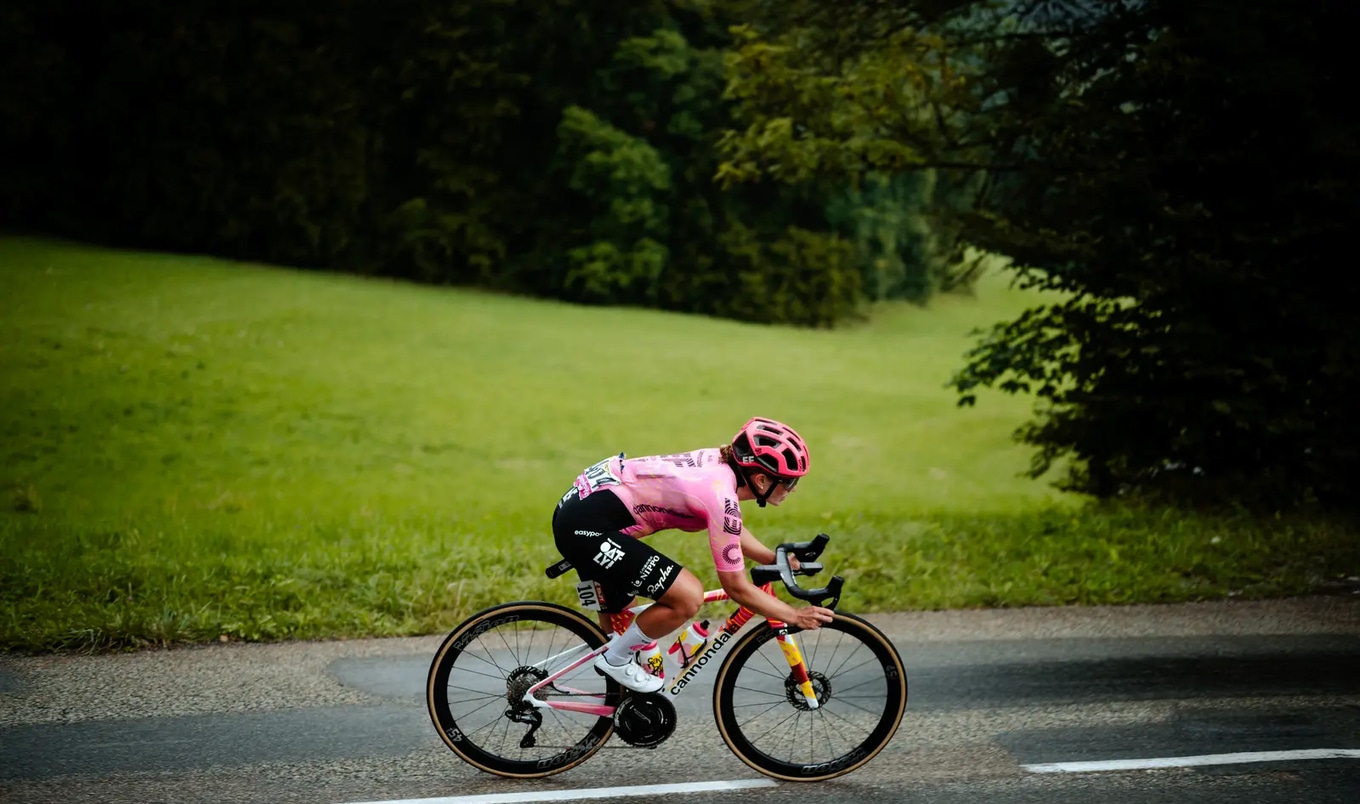 EF Pro Cycling
EF Pro Cycling
BECOME A VEGNEWS VIP: Get exclusive product deals, freebies, and perks galore!
At this year’s Tour de France Femmes race, the women’s EF Pro Cycling team, officially named EF-Oatly-Cannondale, embraced a dairy-free diet, incorporating oat milk to optimize performance and recovery.
“We’re not afraid to do something new,” Jonathan Vaughters, CEO of EF Pro Cycling, said in a statement. “We have the science to back up going dairy-free and we have Oatly which keeps our riders happy and healthy.”
Supported by scientific evidence, choosing to replace dairy with plant-based alternatives can be a winning move. Studies continue to find that plant-based nutrition can enhance recovery, reduce inflammation, and improve oxygen delivery to muscles, all critical factors for athletes involved in endurance sports.
The team’s nutritionist and chef Anna Carceller designed dairy-free menus to prepare the cyclists for the race, noting that removing dairy helps lactose-intolerant riders feel their best on race day.
“A dairy-free diet is compatible with high performance,” Carceller said. “Food science has shown us that nutritional diversity can be met in a dairy-free diet, allowing an athlete to have an excellent diet while going dairy-free without problems.”
How did the team do? The EF-Oatly-Cannondale riders made the trek through all eight grueling stages of Tour de France Femmes, from Rotterdam to Alpe d’Huez, pulling in five top-five finishes, all without dairy.
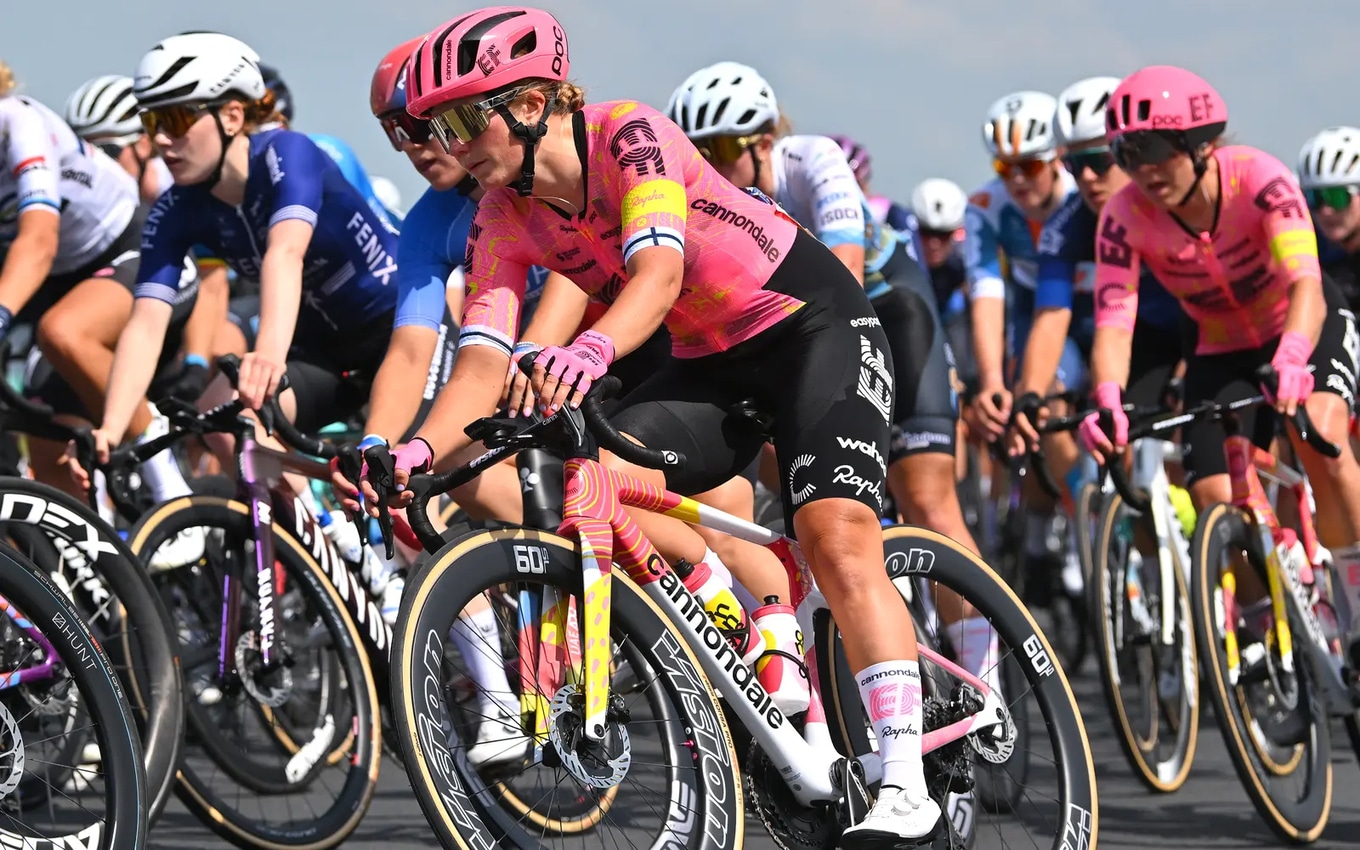 EF Pro Cycling
EF Pro Cycling
“Planning a dairy-free grand tour has given us the opportunity to be creative in our way of addressing nutrition in a race as important as this,” Carceller said. “It’s led us to reflect on the relationship between sport nutrition and the enjoyment of eating.”
“It’s been fun and eye-opening to embrace a completely dairy-free Tour de France Femmes and to show that it is possible to meet the needs of our riders,” Carceller said. “It is always exciting to explore new paths.”
Oatly: changing the game for professional athletes
Beyond cycling, Oatly has previously partnered with other fitness and sports organizations to make plant-based nutrition accessible and effective for athletes.
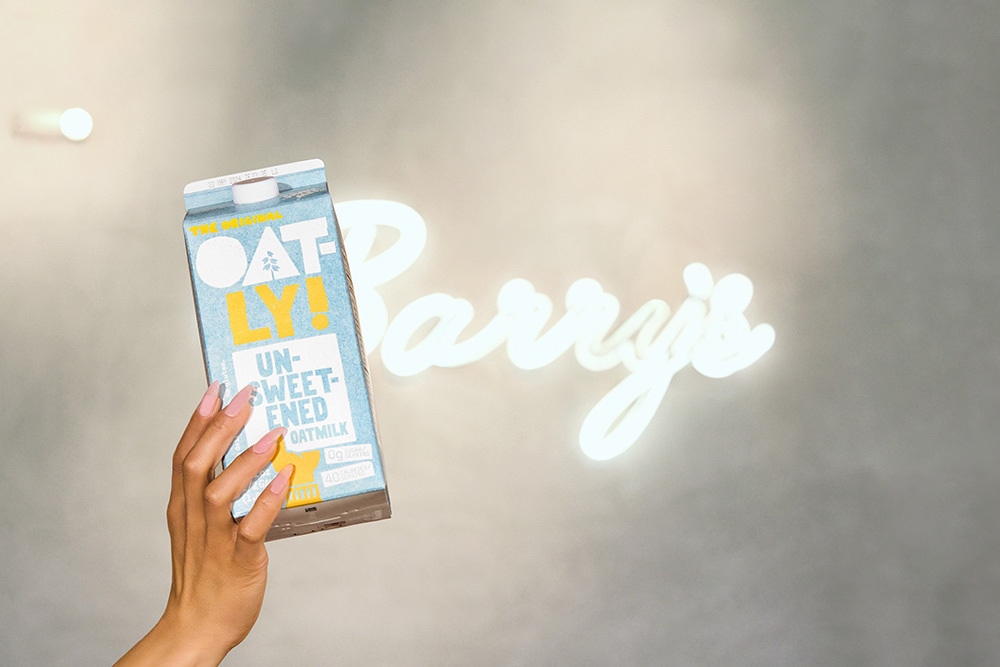 Barry’s Bootcamp/Oatly
Barry’s Bootcamp/Oatly
Earlier this year, Oatly’s partnered with Barry’s Bootcamp to introduce its Unsweetened Oatmilk as a recovery option at 40 locations of the fitness center across the United States. Called “That Shake with Oatly In It,” the smoothie was served at Barry’s Fuel Bar as a post-workout drink formulated with athletes in mind.
“We are very thoughtful in selecting clean ingredients for the Fuel Bar that will aid in recovery nutrition as it’s greatly important for maintaining muscle strength and function,” Vicky Land, SVP of Brand at Barry’s, said in a statement. “Oatly is the perfect addition to the Fuel Bar family for this reason.”
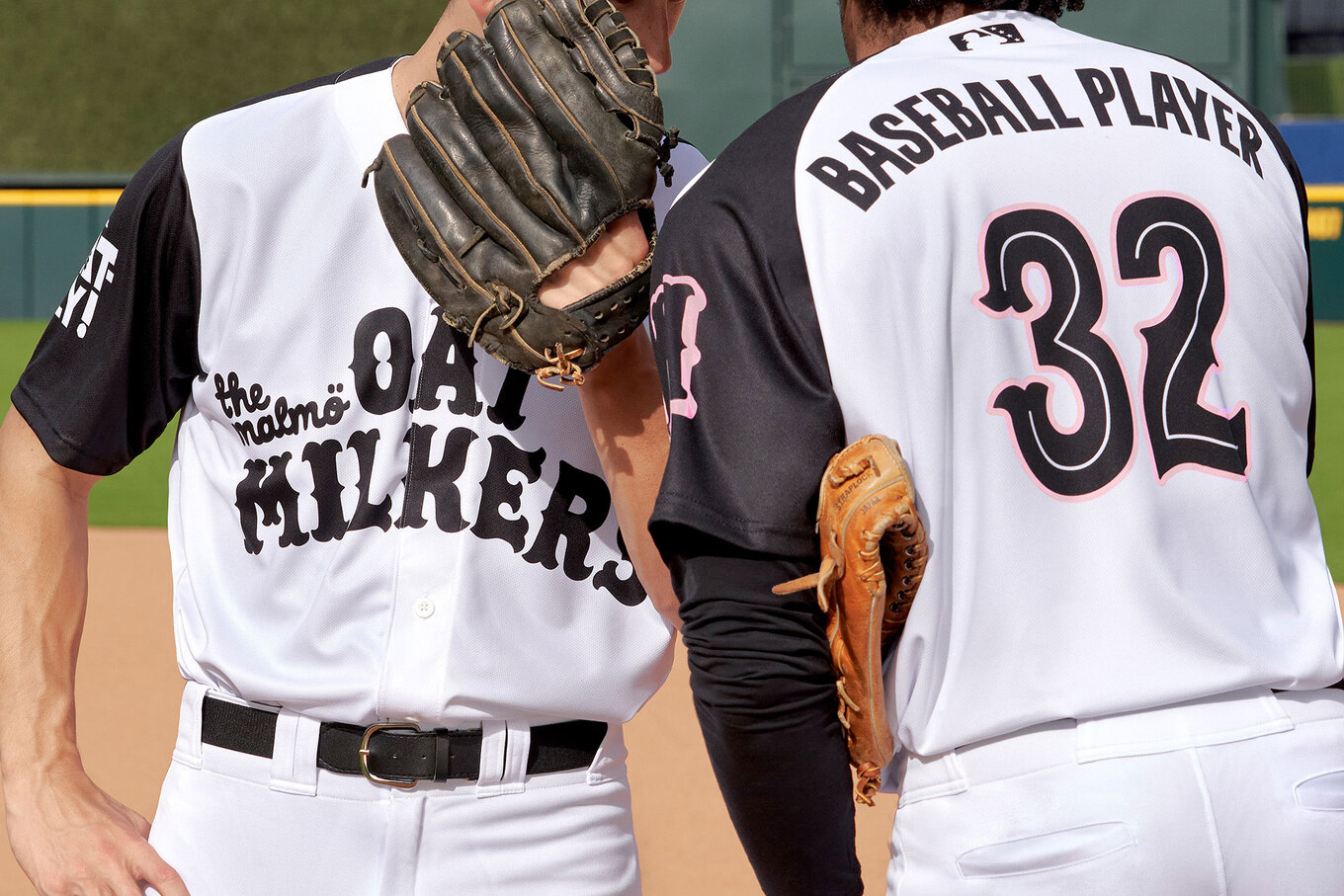 Oatly
Oatly
This summer, Oatly also extended its partnership with Minor League Baseball (MiLB) by creating the Malmö Oat Milkers, the league’s official 121st team.
The roving concept was spread across the MiLB’s 120 teams—who adopted the Oat Milkers identity throughout the season—as a way to inject playfulness into the sport but also to introduce players and fans alike to its oat milk.
For more plant-based stories like this, read:
JUMP TO ... Latest News | Recipes | Guides | Health | Subscribe



